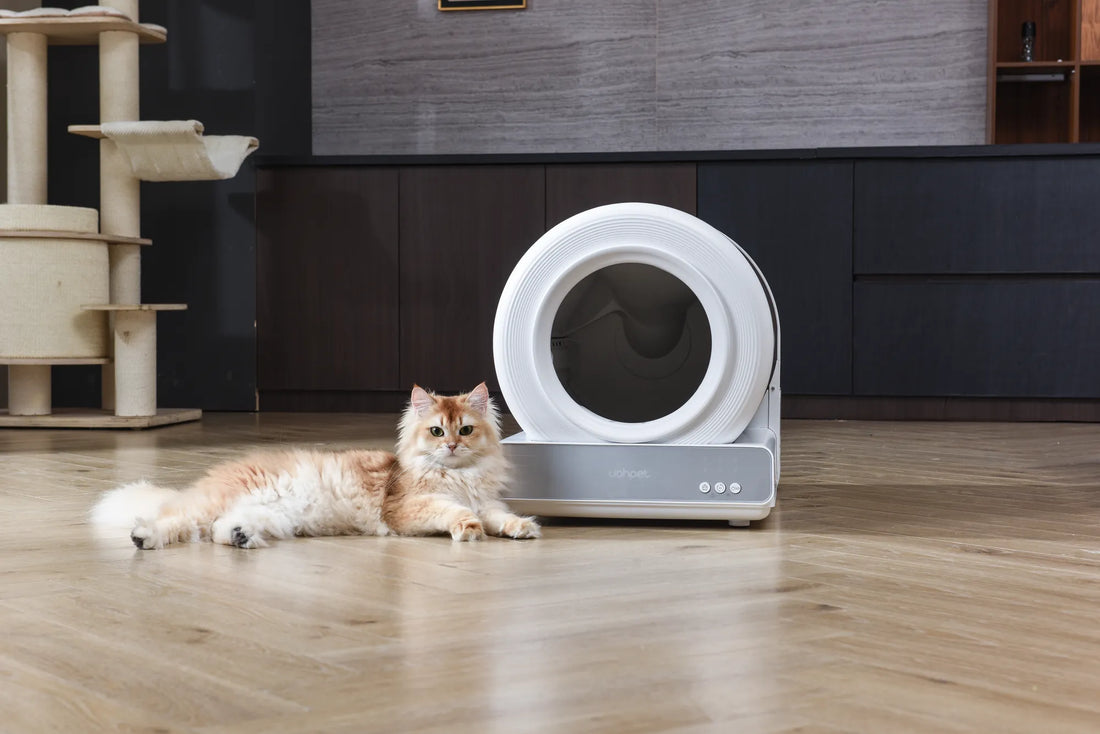If you've ever walked into your home to find your cat has thrown up in the litter box, you're not alone. This behavior can be both puzzling and concerning for pet owners. While it might seem like a random act, there are several reasons why your cat might choose the litter box as the spot for their upset stomach. Understanding these reasons can help you address the issue and ensure your feline friend stays healthy and happy.
Common Causes of Vomiting in Cats
Vomiting in cats can be caused by a variety of factors, ranging from minor issues to more serious health concerns. One of the most common reasons is dietary indiscretion. Cats are curious creatures and may ingest something that doesn't agree with their stomach, leading to vomiting. This could be anything from a new type of food to a non-food item they found around the house.
Another common cause is hairballs. Cats groom themselves frequently, and in the process, they ingest a lot of hair. While most of this hair passes through their digestive system without issue, sometimes it can accumulate and form a hairball, which they then vomit up. Hairballs are usually harmless but can be uncomfortable for your cat.
Stress and anxiety can also lead to vomiting in cats. Changes in their environment, such as moving to a new home, the introduction of a new pet, or even changes in their daily routine, can cause stress. This stress can manifest in various ways, including vomiting.
Why the Litter Box?
So, why would your cat choose the litter box as the place to vomit? One reason could be that the litter box is a familiar and safe space for your cat. Cats are creatures of habit and often feel secure in their designated areas. If they feel nauseous, they might seek out a place where they feel comfortable, and the litter box fits the bill.
Another possibility is that your cat associates the litter box with the act of expelling waste. Vomiting is another form of expelling something from their body, so it might make sense to them to do it in the same place where they usually eliminate waste.
It's also worth considering that your cat might not have had much of a choice. If they were in the litter box when they felt the urge to vomit, they might not have had time to move to a different location.
When to Be Concerned
While occasional vomiting is usually not a cause for concern, there are times when it might indicate a more serious issue. If your cat is vomiting frequently, seems lethargic, has a loss of appetite, or shows any other signs of illness, it's important to consult your veterinarian. Frequent vomiting can be a sign of a more serious condition, such as kidney disease, liver disease, or gastrointestinal issues.
Another red flag is if the vomit contains blood or looks like coffee grounds. This could indicate internal bleeding and requires immediate veterinary attention. Similarly, if your cat is vomiting and also has diarrhea, it could be a sign of a more systemic issue that needs to be addressed.
How to Help Your Cat
If your cat is vomiting occasionally and seems otherwise healthy, there are a few things you can do to help them. First, ensure they have access to fresh water at all times. Vomiting can lead to dehydration, so it's important to keep them hydrated.
You might also want to consider their diet. If you've recently changed their food, it could be the culprit. Try switching back to their previous food and see if the vomiting stops. If you suspect hairballs are the issue, there are hairball remedies available that can help prevent them from forming.
Reducing stress is another important factor. Try to keep your cat's environment as stable as possible and provide them with plenty of opportunities for mental and physical stimulation. This can help reduce anxiety and prevent stress-related vomiting.
Preventing Future Episodes
Preventing future episodes of vomiting involves a combination of monitoring your cat's health, maintaining a stable environment, and being mindful of their diet. Regular veterinary check-ups can help catch any potential health issues early on. Keeping your cat's environment stress-free and providing them with a balanced diet can also go a long way in preventing vomiting.
It's also important to keep an eye on what your cat is ingesting. Make sure they don't have access to anything that could upset their stomach, such as toxic plants, small objects, or foods that are harmful to cats.
If your cat continues to vomit despite your best efforts, it's important to seek veterinary advice. Your vet can perform a thorough examination and run any necessary tests to determine the underlying cause of the vomiting.
Understanding why your cat threw up in the litter box can help you take the necessary steps to address the issue and keep your feline friend healthy. By paying attention to their behavior, diet, and environment, you can help prevent future episodes and ensure your cat stays happy and comfortable.













